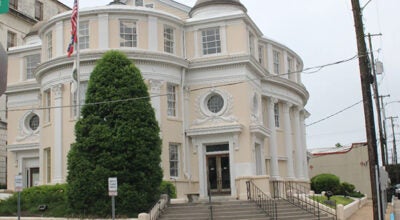The city created the Southern Cultural Heritage Foundation as a municipal department in 1994 after buying all five buildings in the complex for almost $1 million.
Published 12:00 am Monday, October 2, 2000
The organization began under a cloud of racial strife in 1994 as members of the black community were suspicious of whether they would be included in the project.
But SCHF Vice President Landman Teller said the foundation has begun to make great strides in presenting programs for all of the community.
“African-American history is a substantial part of Vicksburg history, and it should be given priority,” Teller said.
Former Mayor Joe Loviza said the original intent was to hand over the complex to the private foundation once it was on its feet.
“We wanted to have outlets for the arts and culture,” Loviza said. “We gave them a jump start, and I see it with a bright future.”
He said more could be done to make the programs reflect all ethnic groups, but overall he is pleased with the direction the foundation is headed.
In fiscal 1999, the Board of Mayor and Aldermen voted to end direct funding of the foundation, replacing it with a $150,000 grant each year for two years.
Mayor Robert Walker noted that the money previously budgeted for the foundation now will be used to maintain and improve the Motor Vessel Mississippi at the City Front.
“I’m glad to see that they have become independent, as they wanted to be,” Walker said. “I’m extremely happy that they are doing well.”
In the past year, the programs at the complex have been picking up steam at a record rate. Smith estimates that SCHC is hosting twice or three times as many programs this year as in 1999.
“We don’t plan on cutting back our activities” now that funding is an issue, he said. “That is the very heart of our organization.”
The programs are designed to reflect Vicksburg’s diversity and the wants and needs of the community, he said.
For instance, on display right now at the complex are photographs by P.H. Polk, an African-American photographer famous for his images of working-class people and farmers during the 1930s and 1940s. His collection includes several pictures of renowned scientist George Washington Carver.
Program Director Julienne Crawford said her favorite activity is a children’s arts program called RiverKids. Taught by local art teachers, RiverKids is intended to enlighten children about art, science and the various cultures of the Mississippi River with fun arts and crafts projects.
Perhaps the most well-known event at the complex each year is the annual Red Tops Celebration, a dance featuring the popular Vicksburg dance band from the 1950s, ’60s and ’70s.
And the Humanities lecture series, reinstituted this year, brings authors, academics and others with something to say about Southern culture to talk directly with the community.
On Oct. 19, writer Alan Huffman will discuss his book on his family’s experiences at an Issaquena County deer camp.
“There’s nothing wrong with having fun while you’re learning something,” Smith said. “If you don’t, you might not have repeat visitors.”
With the city out of the picture, there are three basic ways the Southern Cultural Heritage Foundation can get money for operations, building maintenance and programming: rental fees, memberships and grants.
Rental fees, paid by those wanting to host business meetings, wedding receptions and the like in the historic building, have gone up as a side effect of the center’s independence, which many members of the public are unhappy about.
But Smith said the prices are now more in line with what other facilities charge for the same services. For instance, rental fees for the auditorium have increased from $300 to $500.
In addition, he said, the installation of air conditioning this year to parts of the complex adds greater comfort for people attending programs and increases the number and kind of events that can be held there.
Teller said with the center’s record of programs and the new independence from city politics, grants should be a strong source of funding.
But the support that counts the most comes from members of the community, he said, because it shows foundations with grant money that people care about the organization.
Plans for the complex include renovating the inside of the Cobb House for a bed and breakfast, landscaping part of the inner courtyard and producing an oral history archive.
“Vicksburg has got to get out there and support this,” Teller said. “It’ll never make it on grants alone.
“This year, if those of us who care don’t go out and get the money, it will never make it,” he said.





